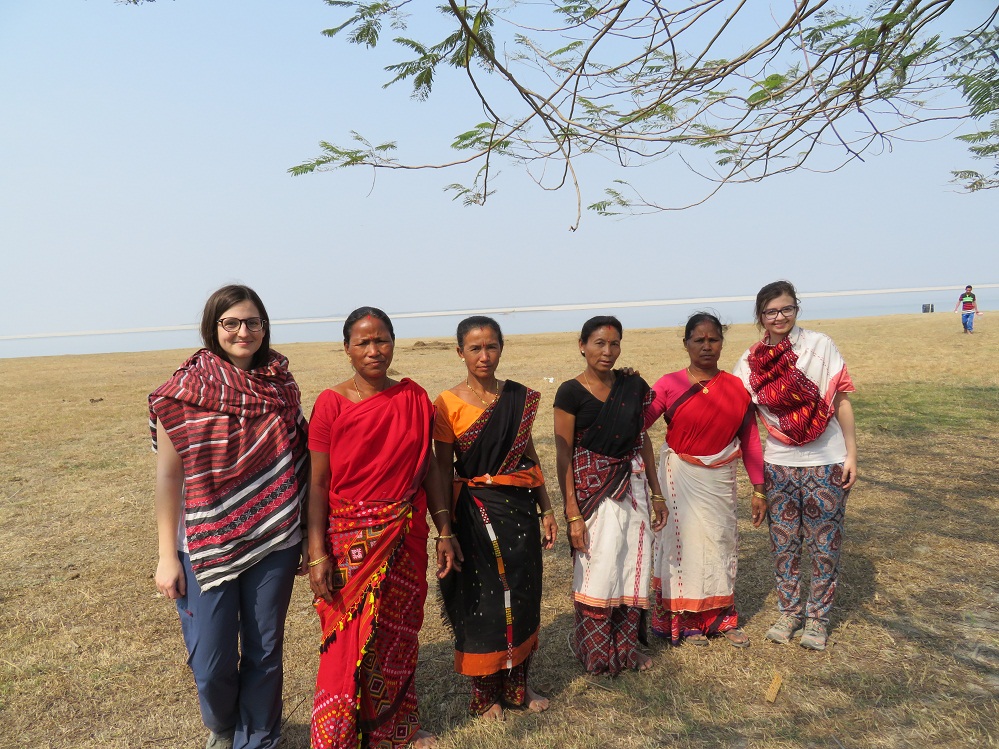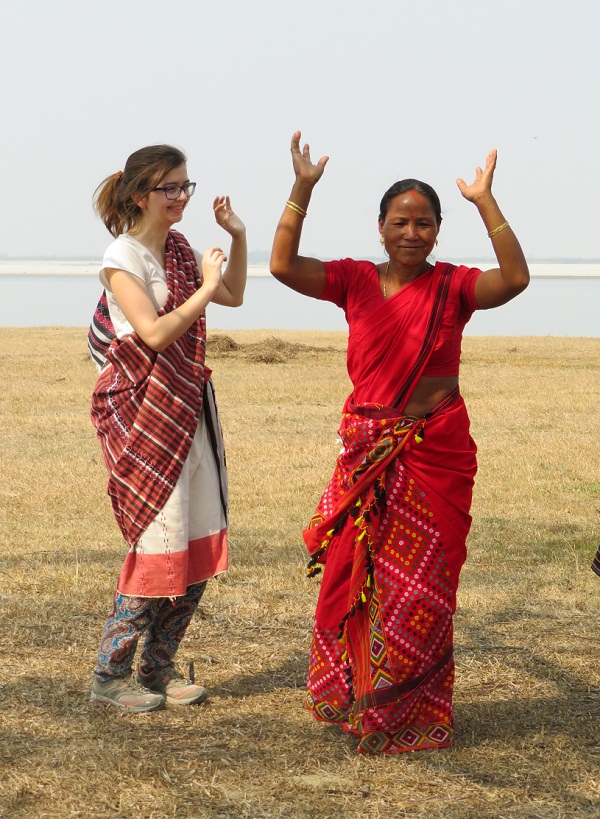
Between Rivers
 The first reaction was a protective urge. They were just a little older than my first born and so innocently charming. “Everywhere we go we are asked about Tomaiina and bull fights, with young people singing the popular Bollywood number Senorita. Of course, we thoroughly enjoyed it. We did watch Zindagi Na Milegi Dobara before coming to India. We did not want to disappoint Indians, but we actually do not identify with these typically Spanish traits as we are from Catalonia, a region in Spain with its own language, culture and traditions.
The first reaction was a protective urge. They were just a little older than my first born and so innocently charming. “Everywhere we go we are asked about Tomaiina and bull fights, with young people singing the popular Bollywood number Senorita. Of course, we thoroughly enjoyed it. We did watch Zindagi Na Milegi Dobara before coming to India. We did not want to disappoint Indians, but we actually do not identify with these typically Spanish traits as we are from Catalonia, a region in Spain with its own language, culture and traditions.
Although bull fights are still popular in some parts of Spain, in Catalonia, it has been prohibited because of animal rights”. Indeed, the Catalan Independence Movement is a political and popular movement, which seeks independence of Catalonia from Spain. I could sense that my young friends felt quite strongly about this self-determination movement.
Clara Gene Skrabec and Mariona Sirryol — who re-cently volunteered with C-NES’ Boat Clinics. have just graduated from medical school at the University of Barcelona. Says Clara: “I was born and raised in Barcelona, but my mother, Simona Skrabec, a writer by profession, is Sloveni-an and I keep in close contact with my family there”. Mariona was born in a little village in the North of Spain called Figueres, where she grew up and moved to Barcelona at the age of 18 to study at the university. India has attracted them for quite a while. At the same time, they also wanted to see how different the med-ical practice would be in such differ-ent and difficult conditions such as those where the Boat Clinics oper-ate. Mariona fell in love with the country years ago, when her aunt —who travelled around India many times — told her stories about the country, while Clara has a few Indian friends through whom she got to know a bit about Indian cuisine and culture. The girls confess that they are Bollywood fans. “A very useful topic to break the ice with the people who do not speak much English here,” they smile and say. They add, “Even though we have limited experience, we are motivated to learn and help those seeking assistance, which is after all the reason why we became doctors. From our point of view, clinical practice adapts to the patients, the diseases and resources in hand, which can be very different from one country to another. We strongly believe that having taken part in the Boat Clinic health outreach programme will enrich our future medical career as well as our personal development.”

Emotional about their stay in Assam, they say that this visit has changed them much. They volunteered with C-NES’ Boat Clinics in river island villages across four districts — Kamrup, Morig-aon. Jorhat and Di-brugarh. They interacted with the health teams and beneficiaries in each district through local translators, even learnt basic Assamese and were amazed to see the variety in culture and beliefs among the island dwell-ers. They observed how awareness sessions on health, hygiene and so-cial issues were held in health camps in remote areas, including lessons for women that are changing their ways of living for the better. In Morigaon, they were told that a few years ago newborns were given cow’s milk in-stead of being breastfed. Constant awareness has brought a change and now young mothers know the impor-tance of breastfeeding. In Dibrugarh, they saw how nurses taught the vil-lagers about the importance of chil-dren’s vaccination. They add, “Dur-ing this experience, we learnt that health care makes much more sense when it is centred on people’s needs, rather than just repeating the same standard model. In addition, the care is perfectly adapted to the communities and their special needs. We learnt that it is ac-tually more important to build trust and reach more people than to follow a thorough protocol.” They come from a country where public 1/1 with the latest update and tech-nology free and public hospitals drugs for the elderly and poor the underprivileged. Even th health is absolutely free for nology are mostly preferred. They were appalled at the state of the public (Govt.) hospitals here, at the same time appreciat-ing the immense population pres-sure which they handle.
Apart from the Boat Clinic experi-ence, they could just about explore a little bit of this State which fascinated them. What made them panic was the traffic, the utter disregard of traffic rules, admitting that they gradually got used to the “crazy driving”. Says Clara, “We absolutely loved the food, although our tummies are still reluctant to adapt to the spicy food. We have not had the op-portunity to do many touristy ac-tivities, but visiting Kaziranga and the Karnakhya Temple have left us speechless. Overall, Assam is a beautiful region with unbelievably welcoming and amazing people. We realised that Indian society is based around the family. Even in buses and trains, people do not hesitate to ask personal .questions. In our society, these questions are not normally asked as introductory statements. Again af-ter getting to know us for just a while, people open the doors to their homes, they cook food for us without spices and make us miss our families a little less. Along the way we have asked people why they do so. The answer is always the same. “We treat guests like gods.” So we go back with the original, “Atithi Devo Bhava”.
by Bhaswati Goswami on The Assam Tribune